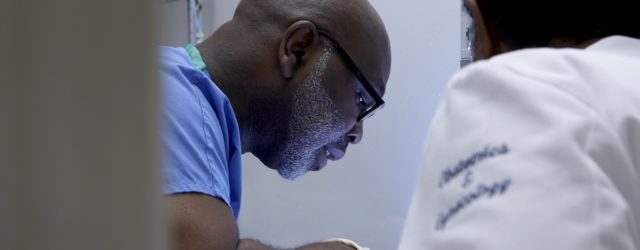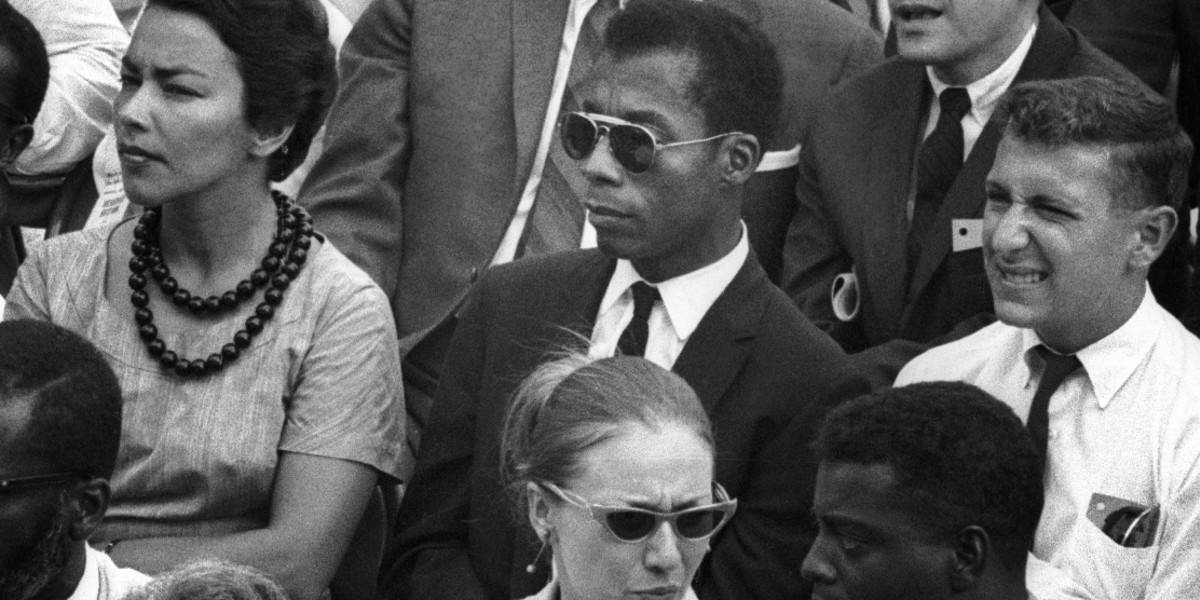 There is one abortion clinic left in the state of Mississippi, and there are three in the state of Alabama. Since 2010, in a flurry of backlash aimed at the Obama Administration, state governments particularly in the South, have passed a series of restrictive laws attacking women’s health rights and access to abortions. These TRAP laws, or Targeted Regulations of Abortion Providers, are spreading rapidly across the United States, primarily affecting impoverished women and women of color.
There is one abortion clinic left in the state of Mississippi, and there are three in the state of Alabama. Since 2010, in a flurry of backlash aimed at the Obama Administration, state governments particularly in the South, have passed a series of restrictive laws attacking women’s health rights and access to abortions. These TRAP laws, or Targeted Regulations of Abortion Providers, are spreading rapidly across the United States, primarily affecting impoverished women and women of color.
Filmmaker Dawn Porter’s “TRAPPED” focuses on the three remaining clinics in the state of Alabama. The film follows Dr. Willie Parker, a Black abortion doctor who left Chicago to return to his hometown of Alabama and practice, and Marva Sadler, an administrator at Whole Women’s Health. Sadler works tirelessly to make sure that women in Alabama continue to have access to abortions. The film also chronicles the lives of everyday women, who are grappling with very difficult decisions in the midst of unfathomable circumstances.
“TRAPPED” will be premiering on PBS Independent Lens today, Monday, June 20th. Leading up to its TV premiere, I sat down with Dawn Porter to chat about the film, TRAP laws, our current political climate, the shamming of women, and how these laws are significantly affecting Black women.
Aramide Tinubu: First of all, I would like to say that “Trapped” is incredible. I was just outdone as a Black woman who perceives herself to well-versed in women’s rights issues and Planned Parenthood and so forth, that, I knew nothing about these TRAP laws. I also had no idea what was happening with abortion clinics in the South. What is it about the South that festers and fosters this type of legislation?
Dawn Porter: I felt exactly the way you felt. I felt outdone. I was in Mississippi working on my film, “Spies of Mississippi” and I was filming an interview with a reporter from the Jackson-Clarion Ledger, Jerry Mitchell. I was reading the paper and I read that there was one abortion clinic in the entire state of Mississippi, and my jaw dropped. I thought, “How could this be?” So I called them up and asked if I could come over, and this Black man comes out. I think he was curious about me. There had been some news coverage about it being the last clinic, but the Black press was not there. However, when you look at who is accessing abortions, the first overriding number is that forty-nine percent of people getting abortions are living below the poverty level. So what that means is that even though most of the women who are getting abortions are white women, the second largest group is Black women; something like twenty-nine percent. However, we over-represent in terms of poverty, and I think there is an overlay with poverty.
AT: Oh without question.
DP: So, I think this is a Black health and economic community crisis. That is why I felt like Dr. [Willie] Parker was such a gift. Being a Black man who is sensitive to those issues, he had no problem going there. He understood every issue that intertwines in the Black community; religion, poverty, women’s rights, women’s positions and how women are treated. So, I was as stunned as you were, and I just wanted to understand how this happened. But, the second piece to this is that this is not just a Southern phenomenon. I think there are twenty-seven states with very similar TRAP laws. This is all tied back to politics and to racial politics. None of us could have predicted the Trump political era, and I hope that we are going to stay it for a long time; the forces that came to create this. Hopefully he will not become President, because I don’t think he is qualified to be President.
AT: Not at all!
DP: Most importantly, I hope that people do learn something from his appeal. What I learned is that in 2008, President Obama is elected. In 2010 there is an enormous backlash in conservative states who cannot believe that this man has been elected. The state governments go completely red. So, at the state and local level you have this, and then you have Tea Party folks in, and that’s when you start to see these laws targeting women. From 2013 until today, abortion becomes social issue number one. In Alabama, the citizens are at the bottom in terms of education, their Medicaid system is bankrupt and they have no budget…
AT: Widespread unemployment.
DP: …unemployment. Abortion is taking up the time of the legislature, and that is a political crisis. I think that it is no accident that these laws came into place in response to the Obama Administration, and a backlash against a feeling of more liberal and progressive policies taking root. All of that disproportionately impacts women of color.
Continue reading at Shadow and Act.
Image: TRAPPED
 We exist in a world of cycles. Perhaps nowhere else in society are these cycles as prevalent as they are in the entertainment industry. When I grew up in the ‘90s, there were a plethora of black faces on the big and small screens. From Will Smith’s “Fresh Prince” to “Living Single” (aka the original “Sex and the City”), I could turn to any network television station to see myself, or the people closest to me, represented in some way on screen.
We exist in a world of cycles. Perhaps nowhere else in society are these cycles as prevalent as they are in the entertainment industry. When I grew up in the ‘90s, there were a plethora of black faces on the big and small screens. From Will Smith’s “Fresh Prince” to “Living Single” (aka the original “Sex and the City”), I could turn to any network television station to see myself, or the people closest to me, represented in some way on screen.


 There is one abortion clinic left in the state of Mississippi, and there are three in the state of Alabama. Since 2010, in a flurry of backlash aimed at the Obama Administration, state governments particularly in the South, have passed a series of restrictive laws attacking women’s health rights and access to abortions. These TRAP laws, or Targeted Regulations of Abortion Providers, are spreading rapidly across the United States, primarily affecting impoverished women and women of color.
There is one abortion clinic left in the state of Mississippi, and there are three in the state of Alabama. Since 2010, in a flurry of backlash aimed at the Obama Administration, state governments particularly in the South, have passed a series of restrictive laws attacking women’s health rights and access to abortions. These TRAP laws, or Targeted Regulations of Abortion Providers, are spreading rapidly across the United States, primarily affecting impoverished women and women of color.